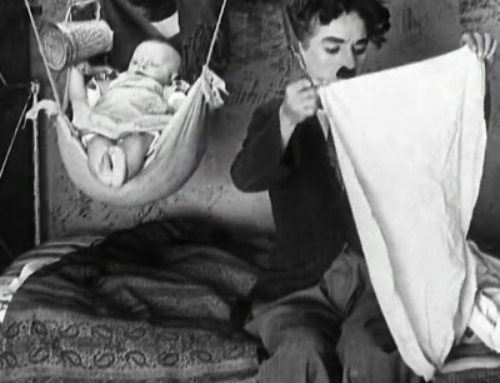In personal culture, the sequence of criticism, cooperation, conservation is natural. To reap the synergetic fruit of these stages of culture, one must work together, as in a kitchen.
68 caught me mature. I had been matured the year before, with a three-hour interrogation on nine complex subjects: a rite of initiation to the Italian bourgeoisie like the man called horse hanging for the Sioux. Our generation had been educated by mature professors who had graduated and taught during the years of fascism, and had found a way to continue their educational mission in republican Italy.
That extraordinary and unforgettable cultural armouring allowed us to face without hesitation the socio-political mess into which the contradictions of the post-war period had driven us. The ability to learn made it possible not to get scared holding Adorno and the Marxian Grundrisse together with hormones screaming in one’s pants, to read (all of!) The Search for Lost Time on a beach, to love oneself by going to see Petri and Bellocchio’s films.
It was precisely that cultural formation, with that cumbersome still-fascist imprint, that pushed us to do what had to be done: criticism. Criticism of a young and strong state, designed with a powerful effort by the generation of liberators, which twenty years after the Constitution was still the ruling class but struggled to apply it. It was a messy and inconclusive critique, easily kept at the margins of major socio-political choices, but centred and incisive on the cultural level, on the structure of common thought and customs. That thought and those customs that the bourgeoisie had changed little in the last 50 years: the ideology of the family, the role of women, the socio-cultural lift, classism in behaviour.
Ten years later and for thirty years more, culture, trained in a thousand assemblies and in listening passionately to everyone’s reasoning, gave us the tools for collective research, that working together on the issues that seemed important. We seemed (confusedly) to apply what had struck us from the stories of our parents’ conscription, of the brief years as partisans or as reconstructionists that had engaged them in the living, in strange and passionate aggregations of voluntary work, before becoming overwhelmed by the private and the everyday. Again, it was culture, matured through study and trained by criticism, that provided us with criteria and method for working together. For 40 years, we have sought and often found companions for the common good, we have done our jobs of service to society, where culture has helped us to remain as unprejudiced and ungrudging as possible, to do politics in our work, invisible to the parties but, perhaps because of this, with an unquestionable order of values.
Now what is done is done, and our culture is now steeped in what we have done. We feel we have done it to the best of our ability. So we are insulted by the thought of throwing it away. We immediately react: throw it away in the name of what?
It is true, however, that in that socio-cultural work we have bred the generation we criticise today: it is our children who are uncomfortable, and it is we who have provided them with the cultural tools to overcome us.
Look, I’m not saying this because of what I did, but what we are is the product of thousands of educated people, who put their souls into it… These are long projects, which bear fruit after tens of years… It’s not like you can throw away the work of an entire generation for a few hundred corrupt, mostly uneducated wafflers…
No, you can’t tell me that it’s like in ‘68, like us contesting our partisan and refounding fathers. There’s no comparison: these people have no culture… they have no idea… and then they only know how to criticise… I want to see them now, with all the European and world problems that there are…
Look… when you have time for a few hours I’ll explain why your ideas aren’t realistic… you see, we already tried this in the 1970s but it didn’t work… and you should have seen it: it took us two years, we had involved two thousand people, but when it came time to do it there were only twenty left… No… it’s not that I don’t believe in it because I didn’t succeed, it’s that culturally it’s weak: people wouldn’t follow you…
No, I have not become conservative…and then: why not…if the things done are good why not keep them? I’m not saying to keep them as they are, but with some adjustments…the flaws are there but they can be fixed…
You are right with your ideas, but you cannot ignore the cultural conditions… fifty years ago it was right to criticise, then I worked with others to overcome what I was criticising, and now I think it is right to conserve what is good that our work has produced: it is a culture that should not be lost, even if you criticise it…
Of course, it is not that everything new is to be thrown away, but this way it is without culture: they did not work on it, they are inventions that will not work… we risk throwing away what little we have for unfounded experiments…
In short: if today it is natural for the ‘68 generation to be conservative, it is important to recognise the merits of each of the cultural phases that distinguished those biographies. The reference values have not changed, the position between the actors has changed, in a system of eternal returns between criticism, cooperation, and conservation.
As in the double spiral of DNA, every half turn the critics, pushed by the co-operators, are confronted by the conservatives (who half a turn before were co-operators and a turn before were critics). Half a turn later the critics become co-operators who, by the way, form the critics of tomorrow.
But as in DNA, vital energy is released in the relationships between the two half-spirals that confront each other: our information assets do not lie in the substances that form the spirals, but in the ever-changing relationships between those ever-changing substances. Thus between criticism, cooperation, conservation: each action at each stage does not have any long-term cultural effect. The effect derives from the complex of relations between all the parts, provided they are organised.
If criticism (or cooperation, or preservation) was valid in ‘68, it may be valid today, mutatae mutandis, but of course a forum must be found where the confrontation between them can be triggered, a breeding ground where the filaments connecting the parts can grow.
This is not a broth of culture, but of culture if anything. In fact, it is now clear that the classic forum for confrontation, ever since the Greeks, is unfit for use: political debate. In that field the wells have been poisoned: competition is worth more than collaboration, words to do harm weigh more than words to do good. There is no room for long projects, those that bear fruit after and away from the plant you have tended, those that you cannot say: they are my products.
For the long projects, the ones that count, you have to find a field where the culture of one respects that of the other: you criticise it, you keep pieces of it, you replenish it without signing each part as your own, but you grow it as a common good.
Let us find a place of culture suitable for this work, anonymous and essential. A kitchen.
Yes, because it takes method and the wisdom of a cook. Not the narcissistic chefs who fill the TVs, but a beautiful terrarian lady, who knows how to arrange five-star and democrats, the new critics and the new conservatives with aprons and attention, and teaches them, with ladles, that three things are needed. We need to start afresh with purchasing, to gather healthy ingredients directly from the land, without trusting the usual vendors. We need research group discipline to get others to put their hands in doughs that we would always only want to make ourselves. What is needed is a continuous and widespread exercise of intellectual honesty to recognise good dishes from the moment they are tasted, and to continue only with those.
Three steps. Simultaneously.
And a cook who knows what to do to feed everyone. Without demanding applause from the room.




